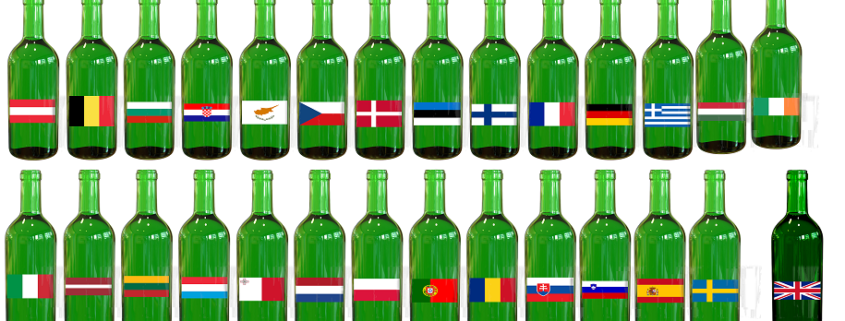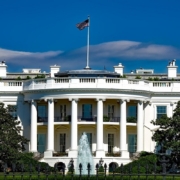A perspective on Brexit from South East Europe
An hour before the UK left behind 2020, the transition period after leaving the EU in 2019 ended and the country found itself with a new regulatory and trading relationship with its largest neighbour, the EU. Brexit had become Brexit. Observing the process from South East Europe, which itself has gone through recent political realignments, offers interesting perspectives.
Where Brexit differs from the 1990s in South East Europe
The main difference with Brexit is that it is a peaceful process. For all the underlying tensions, how the UK fares post-Brexit politically and economically will be determined in an orderly manner. The last-minute agreement between the EU and the UK which avoided a chaotic no deal Brexit clearly helps here. Wars characterised the breakup of Yugoslavia. The ongoing, whilst intermittent conflagrations in the post-Soviet space point to a far from peaceful or settled process there. The Crimean annexation in 2014, frozen conflicts in Moldova and Georgia and last year’s Azeri-Armenian war being the latest examples.
The other difference is the role of the main protagonists. With Brexit, the largest, most influential member of the UK (England) wanted to undo the UK’s relationship with the EU. Smaller, net recipients of transfers from London within the UK, (i.e. Scotland and Northern Ireland) voted in favour of remaining in the EU. Wales, like Montenegro, which remained with Serbia in the immediate aftermath of the breakup of Yugoslavia, voted, with England, to leave the EU.
Major political differences began surfacing in the 1980s
In South East Europe, at least since the mid-1980s Slovenia and Croatia were looking for closer ties to the West. After Tito’s death, it was becoming increasingly clear a mutually acceptable common policy approach was more difficult to find. And they were net contributors to the federal budget. Serbia wanted to maintain its dominant political position and nurture ties with Moscow. Other federal republics, such as Bosnia Herzegovina and Macedonia, were hoping emerging tensions were a bad dream from which they would wake up to find the status quo firmly in place.
If anything, the violent breakup of Yugoslavia prevented the underlying differences between Croatia and Slovenia on one side and Serbia on the other from materialising more clearly. A situation in the post Berlin Wall world where Hungary, Czechia, Slovakia, and Poland moved unequivocally towards the EU, while Croatia and Slovenia remained within a unitary, yet politically dysfunctional Yugoslavia would have brought these differences into sharper focus. The same way that the Brexit process of the past four and a half years has underlined differences between London and Edinburgh, for example.
Similarities and the role of events
In both cases events triggered the complex process of political divorce. Both were also by choice. Brexit through the 2016 referendum. The fall of the Berlin Wall by Gorbachev’s decision to abandon communism in the Soviet Union.
What the intervening period since the wars of independence in South East Europe in the 1990s have demonstrated is how the successor states to Yugoslavia have diverged. Both Croatia and Slovenia have achieved their strategic goals of aligning far more closely with the West. Slovenia is a core member of the EU: it is both a member of the eurozone and the Schengen free movement area. On top of that Slovenia is a member of NATO and the OECD. Croatia, also an EU and NATO member in 2020 joined the Exchange Rate Mechanism II, the last step before adopting the euro. Schengen and OECD membership are in the pipeline. The longer Croatia and Slovenia remain the only EU member states from former Yugoslavia, the greater the divergence with other successor states will be.
Indeed, of the remaining successor states to Yugoslavia, Montenegro and North Macedonia only recently became members of NATO. Meanwhile, while Bosnia Herzegovina and Kosovo do not even have candidate country status in respect of acceding to the EU. Montenegro and Serbia are negotiating entry into the EU. Montenegro is closer to completing the process, yet an EU entry date for these two countries is too distant. No one can credibly nominate that day at the moment. Indeed, the process has slowed to such an extent recently, especially in Serbia’s case, that the question of whether any of these countries genuinely want to join the EU is surfacing. With everyone now independent, the excuse of not being able to join the EU owing to the existence of a dysfunctional Yugoslav political scene is also no longer tenable.
Political differences will become more evident in the UK too
A similar divergence of interests and paths is also a threat to the integrity of the UK. Outside the EU, Northern Ireland, is already different to the rest of the country. Namely, it is a member of the EU’s single market for goods. Additionally, the Republic of Ireland announced ahead of the end of the transition period that it will finance Northern Ireland’s participation in the Eramus education programme and is working on doing the same for the EU’s Health Insurance scheme –neither scheme applies elsewhere in the UK since the end of the transition period.
Momentum is also building in Scotland for a second independence referendum. Since Westminster has to approve a second referendum, any delay or rejection of a request would only generate further demands from Scotland. Especially as the country voted overwhelmingly to remain in the EU and feels its wishes were ignored during the process of leaving the EU. How Scotland fares outside the EU both economically and politically will be a major factor in determining whether it wishes to remain part of the UK, especially given there are some close to the current UK Prime Minister, Boris Johnson who for example want to re-examine the devolution of powers to UK nations such as Scotland, Wales and Northern Ireland.
Whether these differences, which have come into focus since the 2016 referendum and are becoming more apparent as the UK charts its own course, lead to the dissolution of the UK remains to be seen. Should this event come to pass, due to the democratic, bureaucratic and political level of development of the players involved a violent dissolution such as that seen almost immediately in former Yugoslavia and less immediately, but not exactly peacefully in many parts of the former Soviet Union is unimaginable, even given (and perhaps because of) Northern Ireland’s “Troubles” during the 20th century.
Political events can unleash unforeseen consequences
Yet, Brexit is only the latest example of political processes unleashing issues, many of which are difficult to foresee. This includes the possibility of the breakup of a nation, as transpired with the Soviet Union and Yugoslavia. Even when all the actors are deeply steeped in democratic traditions, as in the UK and their negotiating partners in the EU, and there is little apparent risk of violent dissolution. Which is a comforting thought in an already far too interesting 2021.









